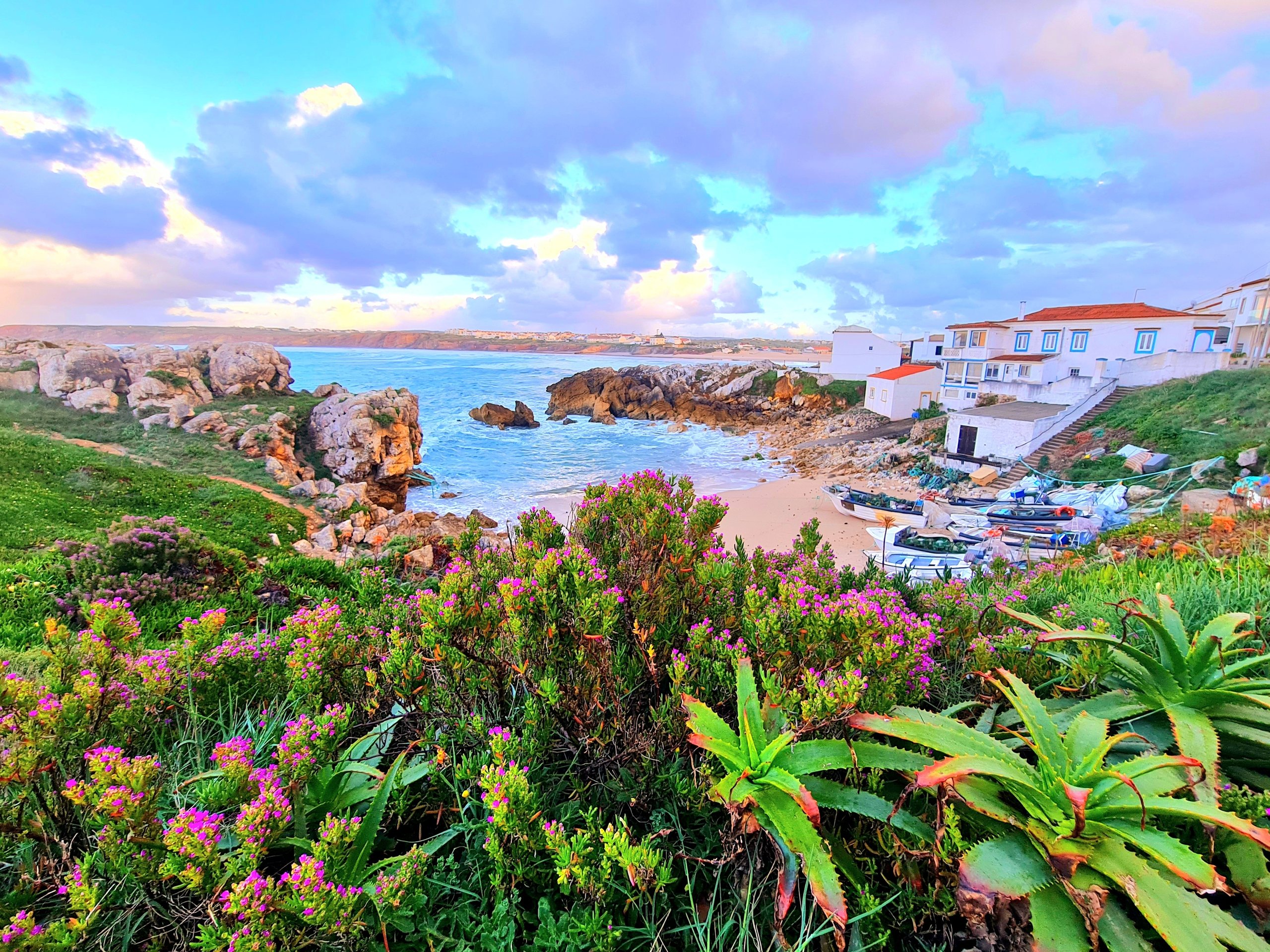Thinking of making Portugal your new home? Whether you’re retiring to the Algarve, relocating for work or raising a young family, understanding how to access healthcare in Portugal is a must. After all, nothing is more important than your health and wellbeing – especially when navigating life in a new country.
Portugal’s healthcare system is ranked among the best in Europe (World Index of Healthcare Innovation, 2024), blending state-funded services with accessible private options. Brits and other international residents can access high-quality care, but there are a few essential steps involved, especially post-Brexit.
We’ll walk you through everything – from emergency cover to signing up for public healthcare, private health insurance, and what to expect for your kids. Plus, we’ll compare the day-to-day costs of living and give you a clearer picture of life in Portugal in 2025.
Contents

Emergency healthcare in Portugal
Let’s start with peace of mind: if you’re visiting Portugal temporarily, emergency medical care is accessible and reliable. Thanks to reciprocal agreements, your UK-issued GHIC (Global Health Insurance Card) will still cover you for urgent treatment, even if you’re settling down post-Brexit. If you’re a citizen from another EU country, the EHIC still applies.
What’s covered? Typically, this includes accidents, illness requiring immediate attention, and short-term treatment. It doesn’t include private care, dental work or transport back to your home country. So think of it as a safety net – not a complete solution.
If you’re travelling before registering locally, carry your GHIC or equivalent. Show it at the hospital or health centre when asked. Many staff at urban medical facilities speak English, but it’s wise to know key medical terms in Portuguese or keep a translated phrase card with you – especially in rural areas.
Remember that Portugal uses the European emergency number: 112. Whether it’s a health scare or an accident, dialling this connects you to the ambulance service, police or fire brigade in English.
For a closer look at purchasing property, claim your free copy of our Portugal Buying Guide:
Download the Portugal Buying Guide
Living in Portugal long term
Once you’ve moved to Portugal full time, registering with the national health system – known as the SNS (Serviço Nacional de Saúde) – becomes important.
Unlike short-term visitors, registered residents can access public healthcare services at reduced rates or even free in many cases. You don’t need to give up your private preferences either – you can use both side by side.
To sign up, you’ll need:
- A Portuguese residence certificate or visa
- Your Número de Utente (healthcare user number)
- Your Portuguese tax identification number (NIF)
- Proof you’re paying into the Portuguese system – usually through work, pensions or social security
You’ll need to visit your local health centre (centro de saúde) and register as a user. Some regions may ask for additional documents, so it’s best to call ahead.
You’ll then be assigned a family doctor and can access the system like a local – for GP appointments, vaccinations, screenings and more. With an active NIF, you may also be eligible for reduced prescriptions, dental check-ups and maternity services.
It’s important to note: while the system is widely used and respected, wait times for non-urgent services can be long. That’s where having a private option helps speed things up.
Private healthcare and insurance
Portugal’s private healthcare system runs in parallel to the public one – and is often favoured by expats for convenience and shorter wait times.
Private hospitals, clinics and specialists operate across the country, and many practitioners speak excellent English – particularly in Lisbon, Porto, the Algarve and international schools’ areas. Facilities tend to be modern and centrally located.
You’ll pay for private appointments, procedures and cover either per visit or via a monthly/annual insurance plan. Prices vary, but are generally lower than in the UK or US. As a guide:
- Private GP appointment: €40–60
- Specialist consultation: €70–100
- Private health insurance: €30–€100 per month, depending on age and coverage
Several insurers cater to international clients – including Allianz, Médis, Multicare and Cigna Global. You can also take out expat-specific plans through brokers who understand your residency status and financial profile. Your Overseas Home partners with approved insurance experts who can guide you to the right cover without hidden charges.
Having insurance doesn’t just give peace of mind. It helps cover advanced diagnostics, surgeries, cancer care, or childbirth in top-tier hospitals – with English-speaking staff and next-day booking options.
Healthcare for families and children
If you’re moving with children, Portugal offers excellent family-focused healthcare. Paediatric services are available through both the public system and private providers, with vaccinations, growth check-ups and dental screening all part of regular care.
Once registered with your local health centre, your child will be assigned a family doctor or paediatrician. Most core vaccinations are included in the national immunisation programme (PNV), and school health checks are common.
Your kids will also benefit from the EU-wide EHIC/GHIC arrangement during travel – helpful if you’re visiting back home.
Many schools – particularly international ones – have arrangements with nearby clinics or require proof of insurance for sports and emergency medical access, so check with your school administrator before enrolling.
Additional tip for new parents: Portugal has excellent maternal health programmes, with birth support and postnatal care included under public healthcare for residents. You’ll typically give birth in a hospital, with access to midwives, consultants and breastfeeding support.
Dentistry for under-18s may be free through school health campaigns, though private sessions offer quicker appointments. Specialist mental health services like child psychologists are often accessed privately via insurance or out-of-pocket.
Cost of living and health-related expenses
Portugal continues to offer great value for money in 2025 – especially for health-related and day-to-day living costs compared to the UK.
Here’s a quick breakdown of common expenses:
- Basic prescription medicine: €5–10
- Public GP appointment fee: around €5–10 (often waived for the over-65s or low income)
- Emergency callout: covered by SNS for residents or GHIC/EHIC for visitors
Let’s say you’re comparing monthly costs: an average single person in the UK might spend over £200 a month on private insurance and prescriptions. In Portugal, most residents spend far less for equivalent care.
It’s worth noting that while essentials like rent, groceries or fuel can cost a bit more now than in 2020, cost of living in Portugal remains cheaper overall than much of Western Europe. Services like hairdressing, cinema trips and even staycations are still affordable.
Private dental care, optical services and wellness treatments – like physio or massage – are widely available and attractively priced. Many providers even offer package deals for regular clients or family groups.
To keep costs predictable, many expats combine state care for everyday issues with a tailored insurance plan for more serious needs. This hybrid model gives you best-of-both-worlds access.
Next steps
Healthcare in Portugal offers a winning mix of quality, access and affordability – particularly for international residents. Whether you stick with state-funded services, invest in private insurance or take a blended route, you can feel confident you’ll be well cared for.
Still unsure where to start? Let us help. Our team of property and residency experts can walk you through registering locally, finding insurance and setting up your new life safely. Book your consultation now and take the first step towards stress-free living abroad.
FAQs about healthcare in Portugal
Yes. Once you register as a resident and get a Número de Utente, you can access Portugal’s public healthcare system (SNS). Services are often low-cost or free, with fees waived for seniors and low-income residents.
Private healthcare is more affordable than in the UK or US. GP appointments cost around €40–€60, and insurance plans range from €30–€100 per month, depending on coverage, age and provider.
Yes. UK-issued GHIC and EU-issued EHIC cards are accepted for emergency healthcare in Portugal. They cover short-term, urgent treatment but not private care or long-term medical needs.
To register with the SNS, you’ll need a residence certificate or visa, Portuguese tax number (NIF), proof of social security payments or pension, and your Número de Utente. Registration happens at your local health centre.
Most paediatric care is free or low-cost through the public system. This includes vaccinations, growth check-ups and dental screenings. Private care is also available and widely used for quicker access to specialists.









